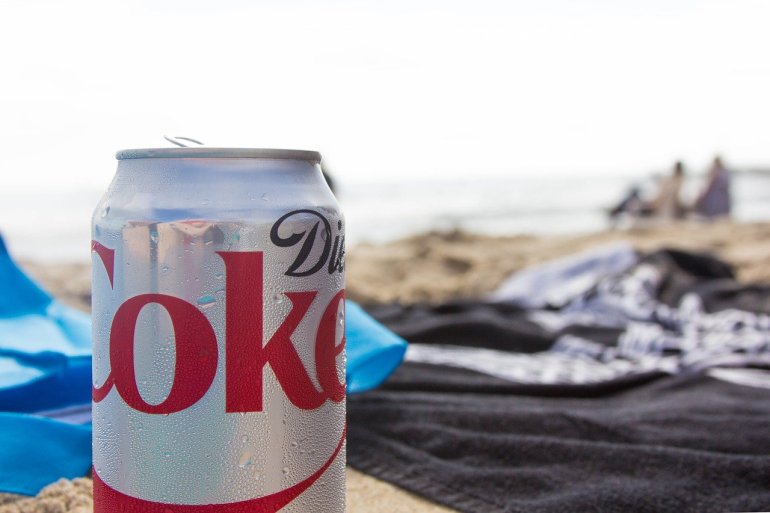Drinks labeled with phrases such as “best for you,” “juice for health,” “natural organic,” etc. are called;
the title of healthy juices;
But you should not be carried away by flashy signs and lively slogans, as the combinations of these drinks negatively affect health.
In the report published by Good House - in its Russian version - writer Irina Obratsova stated that the excessive use of some types of drinks has a cumulative effect and negatively affects health.
Nutrition experts from the Housekeeping Institute revealed the drinks that should be thought before consuming them, reviewing their alternatives.
fruit juice
Fruit is a nutritious product rich in antioxidants and fiber, as the natural sugars in it contain beneficial elements, such as vitamins, minerals and fiber.
It is worth noting that fruit juices offered in stores lack fiber in return for containing large amounts of sugar, which makes them a high-calorie product.
In addition, pasteurization of fruit juices reduces some of the nutrients in them.
Although juices are different and fresh juice is better than concentrated;
Both contain large amounts of calories, equivalent to 150 calories per cup.
Accordingly, studies show that consuming sucrose without fiber in juices leads to metabolic syndrome, liver damage and obesity.
Fruit water - which is water that contains some pieces of fruit - or eating whole fruits at breakfast are healthy alternatives that enhance energy and provide the body's need for fiber.
Sweet coffee drinks
Regular coffee does not pose a health risk, while some exotic types - such as the Frappuccino - cancel all the benefits of coffee because they contain large amounts of sugar.
Therefore, whipped cream, sugary syrup and other harmful additives should be eliminated.
In contrast, a regular cappuccino with only espresso and milk or an Americano without sugar are healthier alternatives.
Whipped cream and sugary syrup added to iced coffee (Pixabe) should be discarded.
sweet soda
A 150-milligram soda bottle — whether it's a cola, orange, lemon, or other kind — contains at least 13 teaspoons of sugar, double the daily requirement.
Therefore, you should not rely on slogans such as "sugar-free", because the sweetness of artificial sweeteners is 200 to 600 times higher than regular sugar.
In contrast, consuming excessive amounts of artificial sweeteners can change taste preferences over time, increasing cravings for super-sweet foods and reducing enjoyment of sugary foods like fresh fruit.
This type of drink can be dispensed with and replaced with a healthy option such as natural water free of additives.
Artificial sweeteners are 200 to 600 times sweeter than regular sugar (Pixaby)
sweet nut milk
Plant-based milk is both delicious and healthy when it does not contain flavorings.
But often sugar is added to such milk to improve the taste, and this applies to all kinds of drinks such as coconut, almond, hazelnut and oats.
In addition, plant milks contain less protein compared to animal milk or soy milk, so it is not considered fully nutritious.
On the other hand, it is recommended to eat coconut milk that is free of artificial sweeteners.
protein shake
Most protein shakes contain large amounts of sugar, artificial sweeteners, preservatives, and other harmful additives.
Therefore, it is recommended to drink water and eat foods that contain protein such as milk, yogurt, eggs, seafood, chicken and beef.
Sports drinks
Exercising at high temperatures or for extended periods of more than 90 minutes shows the need for sports drinks.
In fact, sports drinks are designed to help athletes stay active and rehydrate with the right balance of carbohydrates and minerals.
Moreover, these drinks contain a high percentage of calories, so if you suffer from sensitivity at the level of the stomach, you should give up these drinks as they cause nausea and eat plain water or unsweetened coconut water as a healthy alternative.
Bottled juices
Most juices are promoted as healthy drinks, and their producers cleverly avoid criticism by using "fruit puree".
In contrast, homemade smoothies with slices of fruits and vegetables and protein sources such as yogurt are healthy alternatives.
Ready-made iced tea
A standard bottle of peach iced tea contains 34 grams, which is about 9 teaspoons of added sugar, which is more than the American Heart Association's recommended daily level.
Thus, it is better to add a teaspoon of sugar to the unsweetened drink yourself.
In this regard, unsweetened tea containing citrus slices and one teaspoon of sugar is a healthy alternative.
A standard bottle of iced tea contains about 9 teaspoons of added sugar (Pixabe).
Flavored mineral water
Although not all flavored waters are harmful to health, check labels and note if they contain artificial sweeteners such as aspartame, acesulfame, sucralose and saccharin.
To avoid some of the risks, it is recommended to eat healthy alternatives in the form of sparkling juice or fresh fruit juice.

